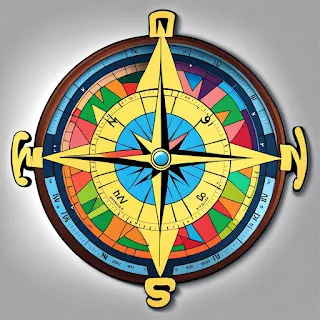Emotional Intelligence: Understanding Your Emotions and Others

In the pursuit of becoming a better version of ourselves, one area often overlooked is emotional intelligence. Our emotions play a significant role in shaping our lives and relationships. Developing a deeper understanding of your emotions and those of others can be a transformative journey. Here's how you can start.
Introduction: The Benefits of Emotional Intelligence
Emotional intelligence is not just a buzzword; it's a powerful tool that can lead to stronger relationships, better communication skills, and increased success in both your personal and professional life. Consequently, by honing your emotional intelligence, you'll find yourself navigating the complex web of human emotions with greater finesse.
1. Self-Reflection: Firstly, the first step is self-reflection. Take the time to analyze your emotions, identify triggers, and understand the patterns. Through journaling, a powerful tool, you can track your feelings and thoughts effectively.
2. Practice Empathy: Moreover, to understand others' emotions, empathy is key. Try to put yourself in their shoes, listen actively, and validate their feelings. As a result, this fosters trust and stronger connections.
3. Learn Emotional Vocabulary: Additionally, expand your emotional vocabulary to accurately describe your feelings. Consequently, when you can label emotions precisely, it becomes easier to manage and express them.
4. Manage Stress: Furthermore, high-stress levels can cloud our emotional judgment. Thus, incorporate stress-reduction techniques like meditation or exercise into your daily routine.
5. Seek Feedback: Equally important is asking for feedback from close friends or mentors. They can provide insights into your blind spots and help you refine your emotional responses.
6. Mindfulness Practice: In addition, mindfulness meditation can increase self-awareness. It helps you stay in the present moment, recognize your emotions, and respond thoughtfully rather than reactively.
7. Recognize Triggers: Furthermore, identifying your emotional triggers, the situations or people that consistently provoke a strong emotional response, is crucial. Understanding these triggers can help you control your reactions.
8. Conflict Resolution: To take this further, developing emotional intelligence can enhance your conflict resolution skills. Instead of reacting defensively, you can address conflicts calmly and constructively.
9. Cultivate Patience: Importantly, it takes time to improve emotional intelligence. Therefore, be patient with yourself and others as you navigate this journey. Celebrate small victories along the way.
10. Seek Resources: Additionally, there are various books, courses, and workshops dedicated to emotional intelligence. Consider exploring these resources to deepen your knowledge.
Conclusion: Taking Action
As you embark on this journey to greater emotional intelligence, remember that it's not about being emotionless but rather understanding, managing, and expressing emotions in a healthy and constructive manner. By honing your emotional intelligence, you not only enhance your personal growth but also create a ripple effect in your interactions with others. Consequently, empathy and emotional awareness can be transformative, both for you and those around you.
To get started, take the key takeaways from this article and put them into practice. Start today, and watch your emotional intelligence flourish, leading to a more fulfilling and enriching life.


